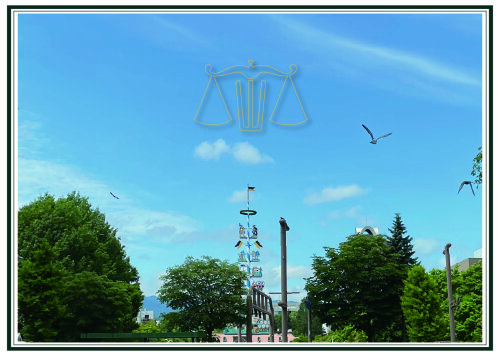Best Social Security Lawyers in Sapporo
Share your needs with us, get contacted by law firms.
Free. Takes 2 min.
List of the best lawyers in Sapporo, Japan
About Social Security Law in Sapporo, Japan
Social Security in Japan is composed of a system ensuring that individuals are covered for pension, health care, and welfare needs. In Sapporo, the capital city of Hokkaido Prefecture, the social security law is consistent with the national system, structured to provide comprehensive coverage to its residents. This system is designed to cater to the needs of all citizens including workers, the elderly, and those with disabilities, providing them the necessary support during retirement, in case of health issues, or unemployment.
Why You May Need a Lawyer
Although Japan's Social Security system is designed to be accessible, there are instances where people may require legal assistance. Common situations include disputes over eligibility for benefits, understanding and fulfilling the requirements for pension claims, navigating the complexities of health insurance, or dealing with the denial of welfare support. In such cases, a lawyer with expertise in social security law can offer invaluable help, ensuring that your rights are protected and you receive the benefits you are entitled to.
Local Laws Overview
In Sapporo, as well as the rest of Japan, the Social Security system is governed by a few key laws. The National Pension Law provides for basic pension coverage, while the Employees’ Pension Insurance Law expands on this for company employees. The Health Insurance Law regulates health care benefits, and the Long-term Care Insurance Law assists the elderly and the disabled with the costs of long-term care. There are also laws related to unemployment insurance and workers' compensation for job-related injuries. For specific local regulations, it is advisable to consult with a Sapporo-based legal professional who has up-to-date information on any new ordinances or changes in the law.
Frequently Asked Questions
1. How do I qualify for social security benefits in Sapporo?
In general, residents of Japan including those living in Sapporo must contribute to the social security system to qualify for benefits. Eligibility criteria can differ based on the type of benefit sought, such as retirement age for pensions or the nature of a health condition for medical coverage.
2. What is the retirement age for receiving a pension in Japan?
The standard age of retirement in Japan to receive a full pension is currently 65 years. However, there are stipulations for early or deferred pension benefits.
3. Are non-citizens eligible for Social Security benefits?
Non-citizens who have contributed to the social security system in Japan may be eligible for certain benefits. This often requires having a status of residence that allows for an extended stay in the country.
4. What should I do if my claim for benefits is denied?
If your claim is denied, you can request a “re-determination” of your application or appeal the decision. A lawyer can assist you in this process to ensure that your case is reviewed and you receive proper consideration.
5. Can I receive Social Security benefits if I move away from Sapporo?
Yes, social security benefits in Japan are typically managed at the national level, so movement between regions should not affect your eligibility.
6. Is health insurance mandatory in Sapporo, Japan?
Yes, all residents in Japan, including those in Sapporo, are required to be covered by health insurance, either through a work-based plan or through the national health insurance system.
7. How can I contribute to the Japanese pension system?
You can contribute to the Japanese pension system either through mandatory contributions deducted from your salary if you are an employee, or through direct payments if you are self-employed or otherwise not covered by an employer's pension plan.
8. What does the Japanese health insurance cover?
Japanese health insurance covers a wide range of medical services, including doctor's visits, medication, surgery, and hospitalization, typically requiring the insured to pay 30% of the medical costs.
9. What is the role of the Social Insurance Office?
The Social Insurance Office is responsible for the administration of various social insurances including health, pension, and long-term care. They are important contact points for assistance and information about benefits and procedures.
10. Where can I get help if I cannot understand Japanese social security paperwork?
If language is a barrier, you can seek support from local international community centers, hire a translator, or consult with a lawyer who speaks your language and understands Japanese social security law.
Additional Resources
Residents in Sapporo seeking information on social security can refer to the Municipal Social Welfare Council, Japan Pension Service, and various health and welfare information centers. The Hokkaido Labour Bureau can provide support relating to employment insurance and workers' compensation.
Next Steps
If you need legal assistance with social security matters in Sapporo, consider contacting a legal professional who specializes in this area. You can find lawyers through the Hokkaido Bar Association or by asking for referrals at local legal aid services. Ensure that you have all the necessary personal documentation and any other relevant information about your case before consulting with a lawyer.
Lawzana helps you find the best lawyers and law firms in Sapporo through a curated and pre-screened list of qualified legal professionals. Our platform offers rankings and detailed profiles of attorneys and law firms, allowing you to compare based on practice areas, including Social Security, experience, and client feedback.
Each profile includes a description of the firm's areas of practice, client reviews, team members and partners, year of establishment, spoken languages, office locations, contact information, social media presence, and any published articles or resources. Most firms on our platform speak English and are experienced in both local and international legal matters.
Get a quote from top-rated law firms in Sapporo, Japan — quickly, securely, and without unnecessary hassle.
Disclaimer:
The information provided on this page is for general informational purposes only and does not constitute legal advice. While we strive to ensure the accuracy and relevance of the content, legal information may change over time, and interpretations of the law can vary. You should always consult with a qualified legal professional for advice specific to your situation.
We disclaim all liability for actions taken or not taken based on the content of this page. If you believe any information is incorrect or outdated, please contact us, and we will review and update it where appropriate.












